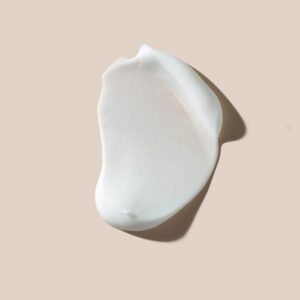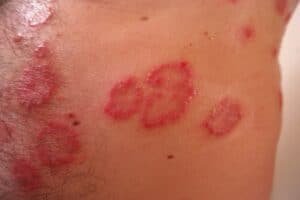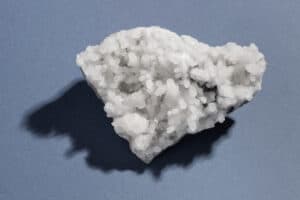Hydration plays a crucial role in maintaining healthy, glowing skin. Your skin, the body’s largest organ, requires adequate water intake to function optimally. Proper hydration aids in maintaining skin elasticity, reducing the appearance of fine lines and wrinkles, and providing a natural glow. Without sufficient water, your skin can become dry, tight, and flaky, which may contribute to signs of aging.
When you drink water, it helps to flush out toxins from your body, improving your skin’s overall health. This detoxification process is essential as it aids in clearing up acne, acne scars and other skin conditions. Drinking water ensures that your cells receive the necessary nutrients, leading to improved cellular function and appearance.
Moreover, hydration affects the skin barrier function. When your skin is well hydrated, it is better equipped to serve as a barrier against environmental aggressors like pollution, UV rays, and harsh weather. By maintaining optimal hydration levels, you support your skin’s resilience and its ability to repair and regenerate.
The Science behind Water and Skin Radiance
Scientific research supports the connection between hydration and skin health. Water impacts the dermis, the skin’s middle layer, which contains collagen, elastin, and blood vessels. Proper hydration helps maintain the dermis’s structure, ensuring that your skin remains firm and smooth. Additionally, water helps in maintaining the skin’s natural pH balance, which is crucial for preventing breakouts and other skin problems.
One study found that increased water intake can positively affect skin physiology. Participants who consumed more water showed improvements in skin thickness and density, indicating enhanced skin health. Water aids in maintaining the skin’s elasticity by ensuring that collagen and elastin fibers remain hydrated and functional.
Water is essential for optimal circulation, which is vital for delivering nutrients and oxygen to your skin cells. This improved circulation enhances your skin’s radiance and helps achieve a vibrant complexion. By drinking enough water, you are not only hydrating your skin from the inside but also promoting its natural glow and vitality. When combined with a balanced intake of vitamin & supplements, this approach supports overall skin health and maximizes your skin’s natural resilience.
Exploring the 8 Glasses a Day Rule: Is it Necessary?
The “8 glasses a day” rule has long been touted as the standard for daily water consumption. However, this guideline may not be as universally applicable as once thought. Individual hydration needs vary based on numerous factors, such as age, weight, activity level, and climate. While 8 glasses might be a suitable baseline, it is crucial to listen to your body’s signals.
Experts suggest that instead of adhering strictly to this rule, you should focus on drinking water throughout the day and responding to your body’s thirst cues. Hydration needs can be assessed by monitoring the color of your urine; pale yellow indicates adequate hydration, while darker hues suggest you need more fluids.
Additionally, you should consider factors such as diet charts, exercise, and personal health conditions when determining your water intake. Foods with high water content, like fruits and vegetables, can contribute significantly to your overall hydration. Therefore, while the 8-glass guideline can serve as a helpful reference, it is essential to tailor your water consumption to meet your individual needs.
Factors That Influence Skin Hydration
Several factors can impact your skin’s hydration levels, including environmental conditions, lifestyle choices, and personal health. Dry climates, air conditioning, and heating can all deplete your skin’s moisture, leading to dryness and discomfort. Therefore, it’s vital to adjust your hydration habits based on the environment you live in.
Your diet also plays a significant role in skin hydration. Consuming foods rich in water, such as cucumbers, watermelons, and oranges, can boost your body’s hydration levels. Additionally, incorporating healthy fats like those found in avocados, nuts, and fish can support your skin’s moisture retention and barrier function.
Lifestyle choices, such as smoking and excessive alcohol consumption, can negatively affect your skin’s hydration. Smoking reduces blood flow to the skin, depriving it of essential nutrients and oxygen. Alcohol, a diuretic, can lead to dehydration, making it important to balance your intake with plenty of water. By being mindful of these factors, you can better manage your skin’s hydration and maintain a healthy, radiant complexion.
Other Benefits of Drinking Water for Overall Health
Drinking water is not only beneficial for your skin but also for your overall health. Proper hydration supports various bodily functions, including digestion, circulation, and temperature regulation. When you drink enough water, you help your body transport nutrients, remove waste, and maintain optimal organ function.
Water also plays a critical role in weight management. Staying hydrated can help control hunger and reduce the risk of overeating. Drinking water before meals can promote a feeling of fullness, potentially leading to reduced calorie intake and supporting weight loss efforts.
Moreover, adequate water intake can enhance physical performance by preventing fatigue and improving endurance. When you exercise, your body loses water through sweat, making it essential to replenish those fluids to maintain energy levels and prevent dehydration. By staying hydrated, you can support your overall well-being and enhance your quality of life.
How to Incorporate More Water into Your Daily Routine
Incorporating more water into your daily routine doesn’t have to be challenging. Start by setting realistic goals and gradually increasing your intake. You can establish a habit by drinking a glass of water first thing in the morning and keeping a reusable water bottle with you throughout the day.
Consider infusing your water with natural flavors to make it more appealing. Adding slices of lemon, cucumber, or berries can enhance the taste and provide additional health benefits. Herbal teas and flavored waters can also contribute to your daily fluid intake while offering a refreshing change.
Tracking your water consumption can help you stay accountable and ensure you’re meeting your hydration goals. Use apps or journals to monitor your intake and set reminders to drink water at regular intervals. By making these small adjustments, you can effortlessly increase your water consumption and enjoy the benefits of improved hydration.
The Role of Diet in Achieving Radiant Skin
Your diet significantly influences your skin’s health and appearance. Consuming a balanced diet rich in vitamins, minerals, and antioxidants can promote radiant skin. Foods high in vitamin C, such as citrus fruits and leafy greens, support collagen production and skin repair.
Omega-3 fatty acids, found in fish like salmon and mackerel, help maintain your skin’s natural oil barrier, keeping it hydrated and supple. Incorporating foods rich in antioxidants, such as berries, nuts, and dark chocolate, can protect your skin from free radical damage and promote a youthful complexion.
Staying hydrated through your diet is also essential. Fruits and vegetables with high water content can contribute to your overall hydration, supporting skin health. By prioritizing nutrient dense foods and maintaining a balanced diet, you can achieve a naturally radiant complexion and enhance your skin’s vitality.
Myths and Facts about Water Consumption and Skin Care
There are many myths surrounding water consumption and its effect on skin care. One common misconception is that drinking excessive amounts of water will automatically result in flawless skin. While hydration is crucial, it is not the sole factor in achieving healthy skin; a comprehensive skincare routine and lifestyle choices play vital roles.
Another myth is that caffeinated beverages dehydrate the skin. While caffeine can have a mild diuretic effect, moderate consumption of coffee or tea can contribute to your overall fluid intake. It’s essential to balance caffeinated drinks with water to maintain adequate hydration levels.
It’s also important to note that while topical moisturizers can help retain moisture, they cannot replace the benefits of internal hydration. Drinking water remains a vital component of skin care, as it supports the skin’s function from the inside out. By understanding the facts and dispelling common myths, you can make informed decisions about your hydration and skincare routine.
Alternative Hydration Sources: Beyond Just Water
While water is the most straightforward way to hydrate, there are alternative sources that can contribute to your daily fluid intake. Herbal teas, coconut water, and broths are excellent hydrating options that can add variety to your routine while providing additional nutrients.
Fruits and vegetables with high water content, such as watermelon, cucumber, and lettuce, can also play a significant role in keeping you hydrated. These foods not only boost hydration but also supply essential vitamins and minerals that support overall health and skin vitality.
Smoothies and soups are other creative ways to incorporate liquids into your diet. By blending fruits, vegetables, and a liquid base, you can create nutrient dense beverages that contribute to your hydration needs. These alternatives provide an enjoyable way to diversify your fluid intake while supporting your skin health.
Conclusion: Balancing Water Intake for Optimal Skin Health
Achieving radiant skin involves a delicate balance of hydration, nutrition, and skincare. While drinking water is essential for maintaining skin health, it is equally important to consider other factors such as diet, lifestyle, and environmental influences. By understanding the science behind hydration and implementing practical strategies, you can support your skin’s natural glow and vitality.
Remember, hydration is a personalized journey. Listen to your body’s cues, and adjust your water intake to meet your unique needs. By incorporating a variety of hydration sources and maintaining a balanced diet, you can unlock the secret to radiant skin.








